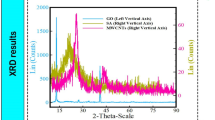Abstract
Vegetable oil-based lubricants can substitute mineral oil-based lubricants for environmental cleanliness. In this paper, nano-lubricant containing blend of coconut and mustard oil added with CeO2 nano-particles was developed. Tribological characteristics, viz., coefficient of friction and specific wear rate of nano-lubricants by varying concentration of nano-particles, blend ratio, load and speed, were measured using a pin-on-disc tribometer. Furthermore, three different MLMs, such as random forest (RF), support vector machine (SVM), and feed forward neural network (FFNN) were used for predicting tribological characteristics. The results of model performance statistics showed that RF, SVM and FFNN have greater ability and stability to regress tribological properties of nano-lubricants effectively. The most influential parameter in predicting wear has been found to be concentration of nano-particles, which occupies 60.78% of coefficient of friction and 88.78% of specific wear rate. The study could help to optimize the cost and time required for modelling tribological properties of lubricants.











Similar content being viewed by others
References
Choi Stephen U S, and Jeffrey Eastman A, In ASME international mechanical engineering congress & exposition (1995) 12.
Sajeeb, A. and Rajendrakumar, P.K., 2019. Comparative evaluation of lubricant properties of biodegradable blend of coconut and mustard oil. Journal of Cleaner Production, 240, p.118255.
Uflyand IE, Zhinzhilo VA and Burlakova VE. Metalcontaining nanomaterials as lubricant additives: stateof-the-art and future development. Friction 2019; 7: 93–116.
Gupta RN and Harsha AP. Friction and wear of nanoadditive based bio-lubricants in steel-steel sliding contacts: a comparative study. J Mater Eng Perform 2018; 27: 648–658.
Kashyap A and Harsha AP. Tribological studies on chemically modified rapeseed oil with CuO and CeO2 nano-particles. Proc IMechE, Part J: J Engineering Tribology 2016; 230: 1562–1571.
Caixiang GU, Qingzhu LI, Zhuoming GU, et al. Study on application of CeO2 and CaCO3 nano-particles in lubricating oils. J Rare Earths 2008; 26: 163–167.
Gupta RN and Harsha AP. Tribological evaluation of calcium– copper–titanate/cerium oxide-based nanolubricants in sliding contact. Lubr Sci 2018; 30: 175–187.
Thottackkad MV, Perikinalil RK and Kumarapillai PN. Tribological analysis of surfactant modified nano-lubricants containing CeO2 nano-particles. J Tribol Mater Surf Interfaces 2014; 8: 125–130.
Koshy, C.P., Rajendrakumar, P.K. and Thottackkad, M.V., 2015. Evaluation of the tribological and thermo-physical properties of coconut oil added with MoS2 nanoparticles at elevated temperatures. Wear, 330, pp.288-308.
Rosenkranz, A.; Marian, M.; Profito, F.J.; Aragon, N.; Shah, R. The use of artificial intelligence in tribology—A perspective. Lubricants 2021, 9, 2
Senthil Kumar, P.; Manisekar, K.; Narayanasamy, R. Experimental and Prediction of Abrasive Wear Behavior of Sintered Cu-SiC Composites Containing Graphite by Using Artificial Neural Networks. Tribol. Trans. 2014, 57, 455–471.
Sardar, Santanu, Swati Dey, and Debdulal Das. "Modelling of tribological responses of composites using integrated ANN-GA technique." Journal of Composite Materials 55, no. 7 (2021): 873-896.
Vinoth, A.; Datta, S. Design of the ultrahigh molecular weight polyethylene composites with multiple nanoparticles: An artificial intelligence approach. J. Compos. Mater. 2020, 54, 179–192.
Aleksendri´c D, and Barton D C, Tribol Int 42 (2009) 1074.
Rosenkranz, Andreas, Max Marian, Francisco J. Profito, Nathan Aragon, and Raj Shah. "The use of artificial intelligence in tribology—A perspective." Lubricants 9, no. 1 (2020): 2.
Bhaumik, S.; Mathew, B.R.; Datta, S. Computational intelligence-based design of lubricant with vegetable oil blend and various nano friction modifiers. Fuel 2019, 241, 733–743.
Bhaumik, S.; Pathak, S.D.; Dey, S.; Datta, S. Artificial intelligence based design of multiple friction modifiers dispersed castor oil and evaluating its tribological properties. Tribol. Int. 2019, 140, 105813.
Humelnicu, C.; Ciortan, S.; Amortila, V. Artificial Neural Network-Based Analysis of the Tribological Behavior of Vegetable Oil-Diesel Fuel Mixtures. Lubricants 2019, 7, 32.
Ahmadi M. H., Ahmadi M. A., Nazari M. A., Mahian O., Ghasempour R., (2019), ‘’A proposed model to predict thermal conductivity ratio of Al2O3/EG nanofluid by applying least squares support vector machine(LSSVM) and genetic algorithm as a connectionist approach’’, Journal of Thermal Analysis and Calorimetry, Vol. 135(1) pp. 271-281
Sharma, G., Kotia, A., Ghosh, S.K., Rana, P.S., Bawa, S. and Ali, M.K.A., 2020. Kinematic Viscosity Prediction of Nanolubricants Employed in Heavy Earth Moving Machinery Using Machine Learning Techniques. International Journal of Precision Engineering and Manufacturing, 21(10), pp.1921-1932.
Sajeeb A and Rajendrakumar PK. Investigation on the rheological behavior of coconut oil based hybrid CeO2/CuO nano-lubricants. Proc IMechE, Part J: J Engineering Tribology 2019; 233: 170–177.
Amiruddin H, Abdollah M, Idris A, Abdullah M. and Tamaldin, N, Proc Mech Eng Research Day 2015: MERD'15 (2015), p 56.
Yu W, and Xie H, J. Nanomater (2012) 1.
Funding
The authors received no financial support for the research, authorship, and/or publication of this article.
Author information
Authors and Affiliations
Corresponding author
Ethics declarations
Conflict of interest
The authors declare no potential conflicts of interest with respect to the research, authorship, and/or publication of this article.
Additional information
Publisher's Note
Springer Nature remains neutral with regard to jurisdictional claims in published maps and institutional affiliations.
Rights and permissions
Springer Nature or its licensor (e.g. a society or other partner) holds exclusive rights to this article under a publishing agreement with the author(s) or other rightsholder(s); author self-archiving of the accepted manuscript version of this article is solely governed by the terms of such publishing agreement and applicable law.
About this article
Cite this article
Sajeeb, A., Rajendrakumar, P.K. Experimental Investigation and Machine Learning Techniques on Tribological Characteristics of Blend of Coconut and Mustard Oil Based Nano-lubricant. Trans Indian Inst Met 76, 2391–2400 (2023). https://doi.org/10.1007/s12666-022-02800-5
Received:
Accepted:
Published:
Issue Date:
DOI: https://doi.org/10.1007/s12666-022-02800-5




